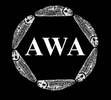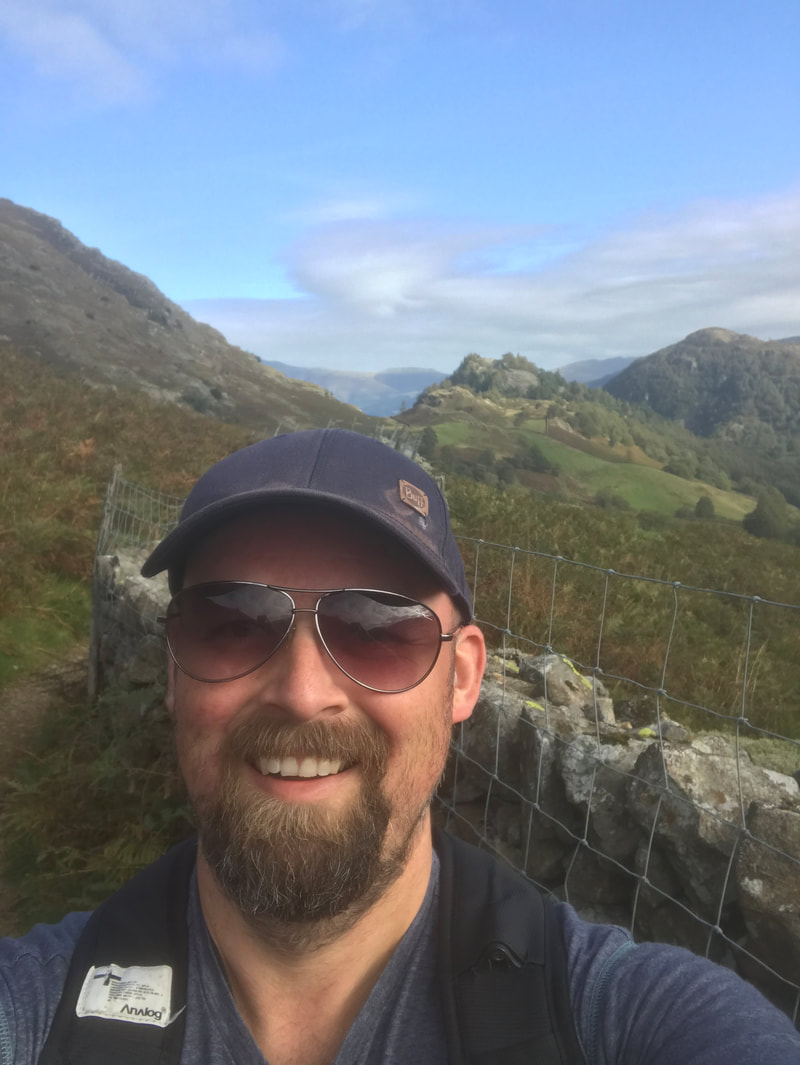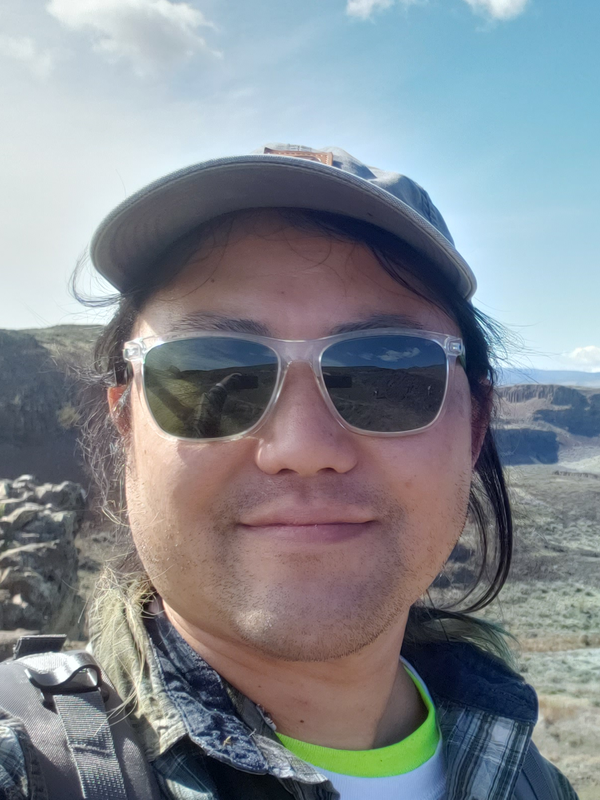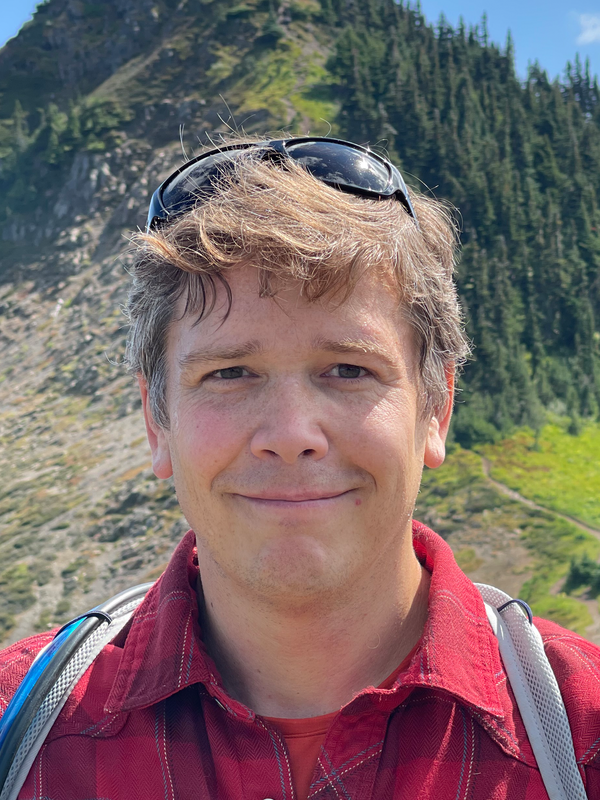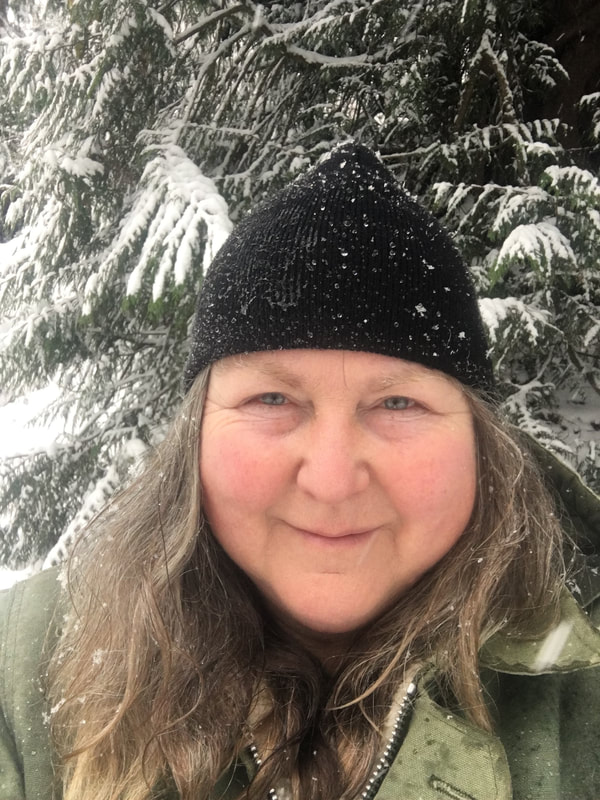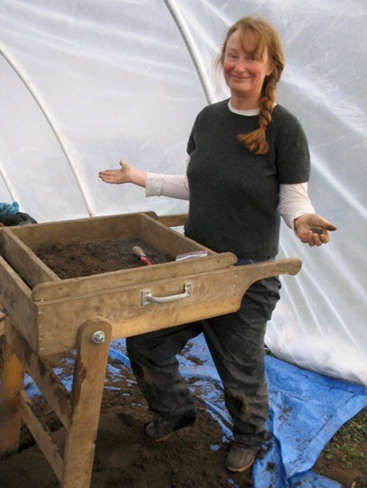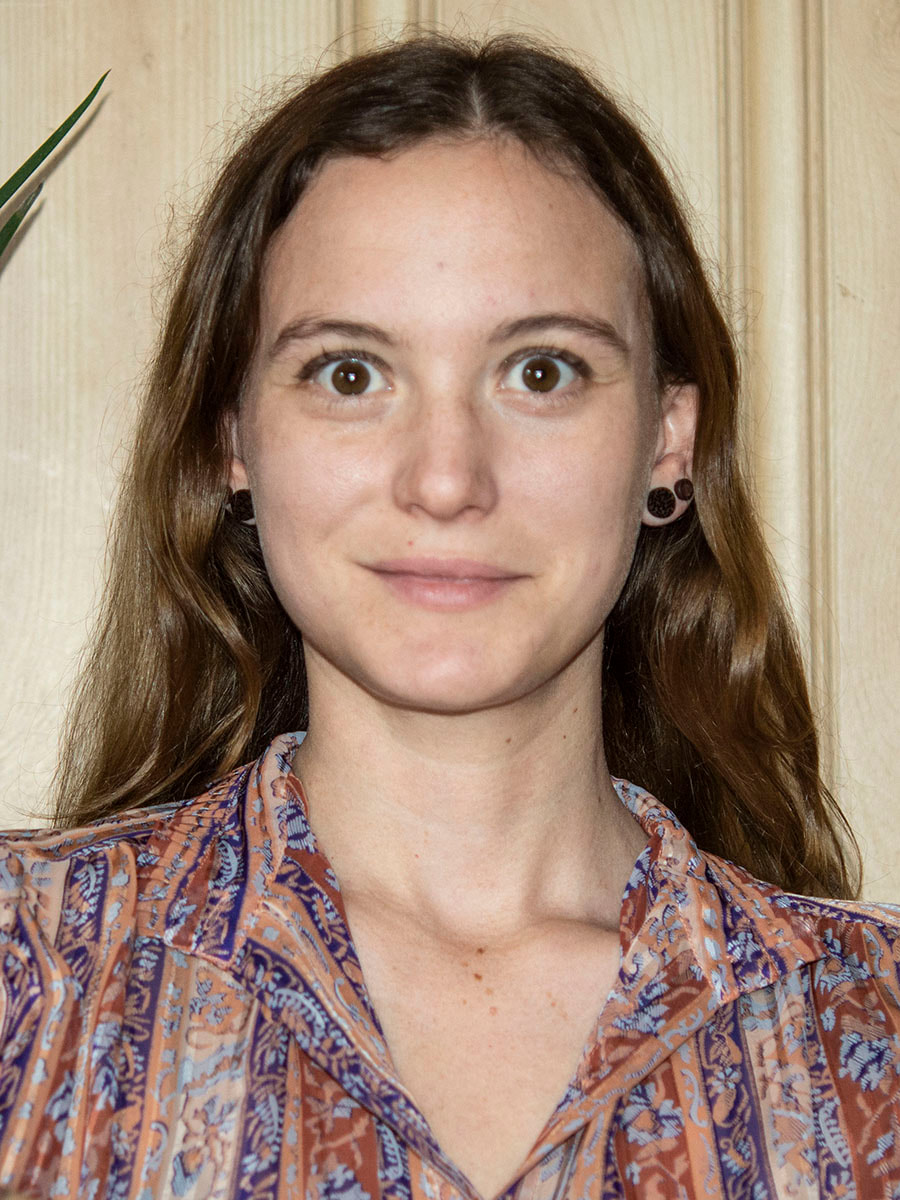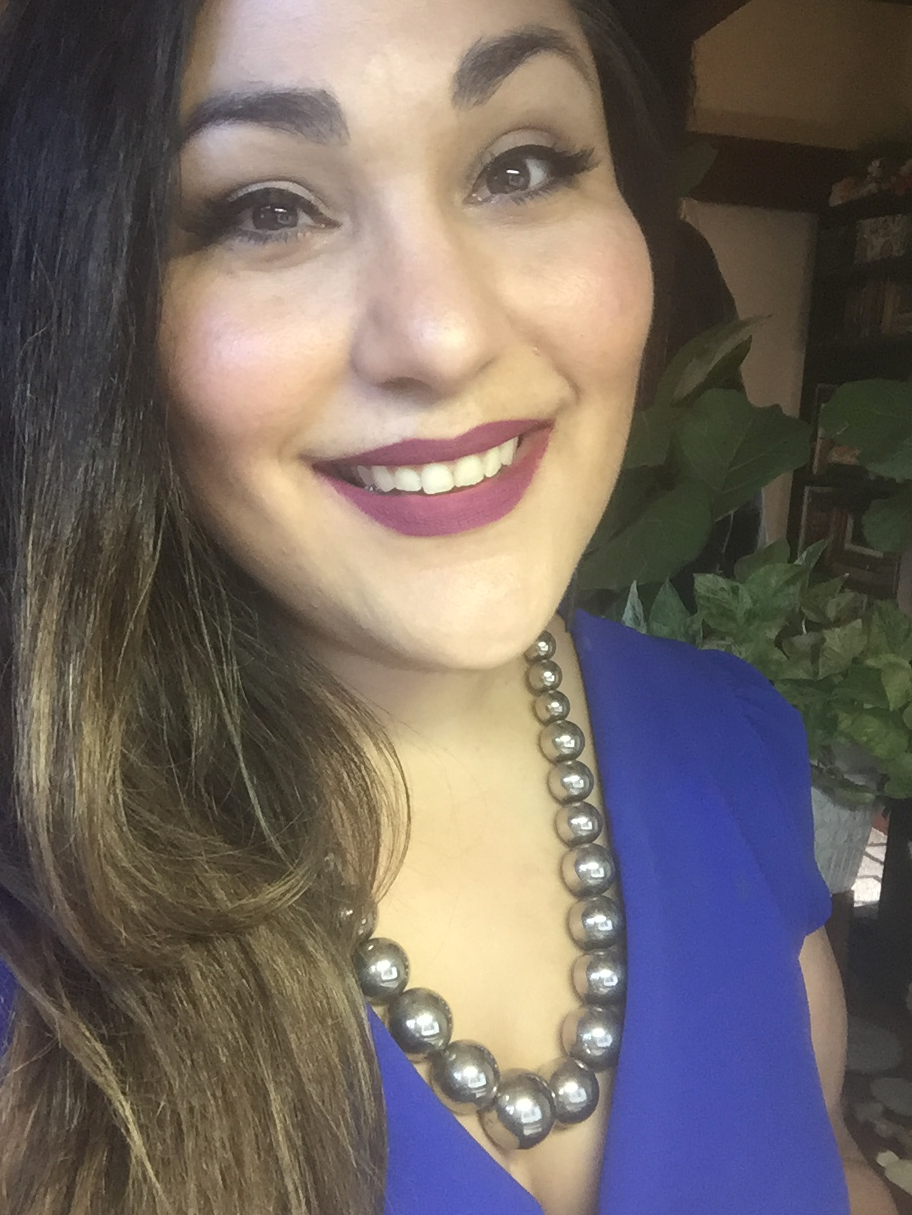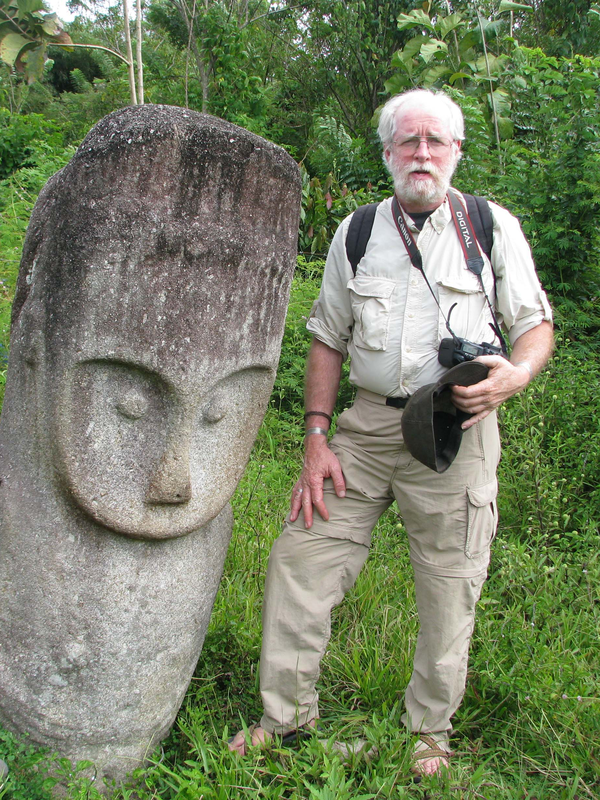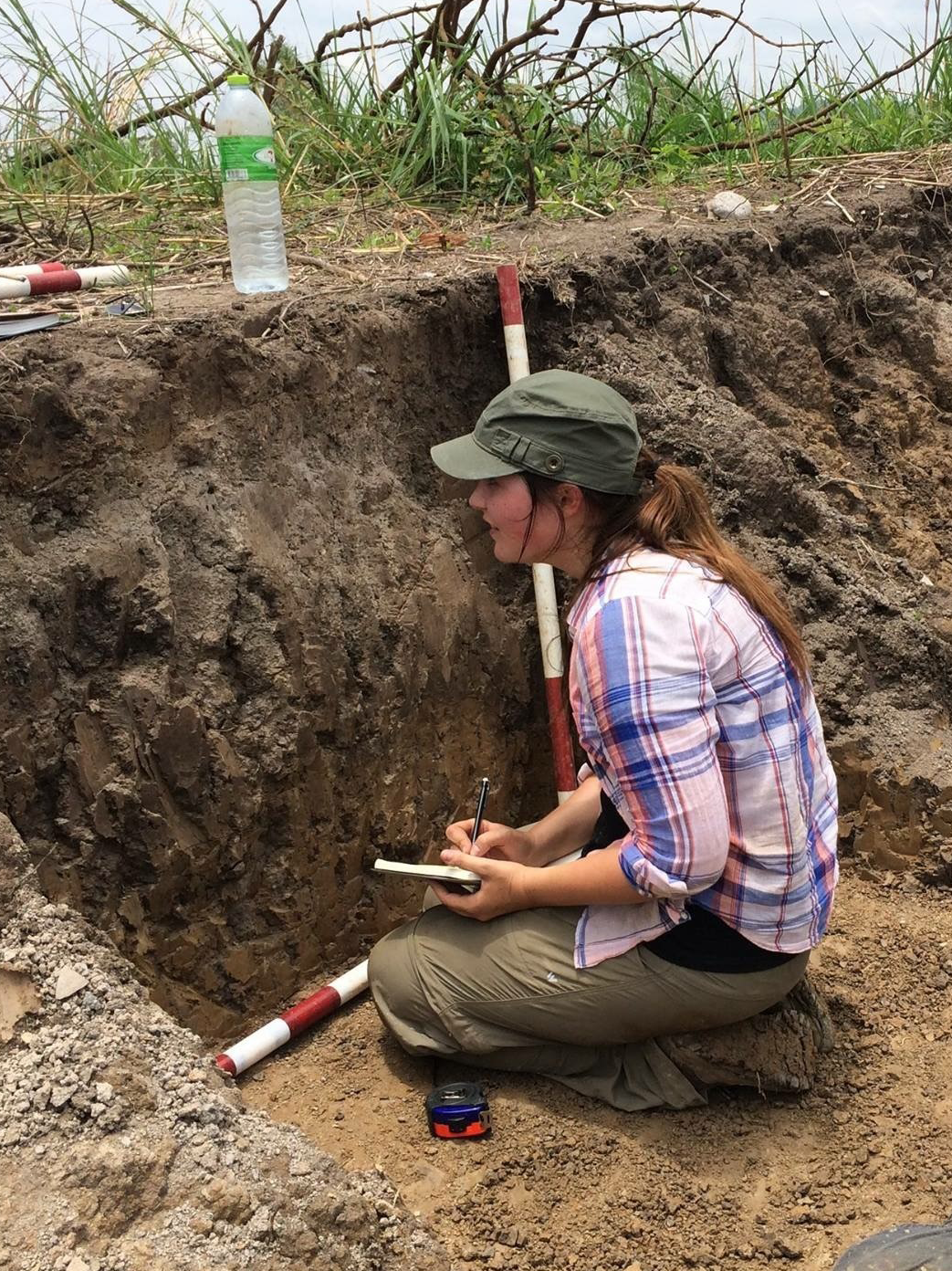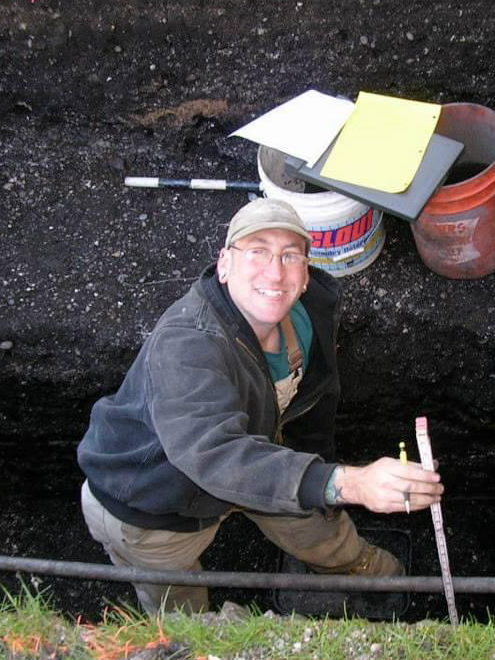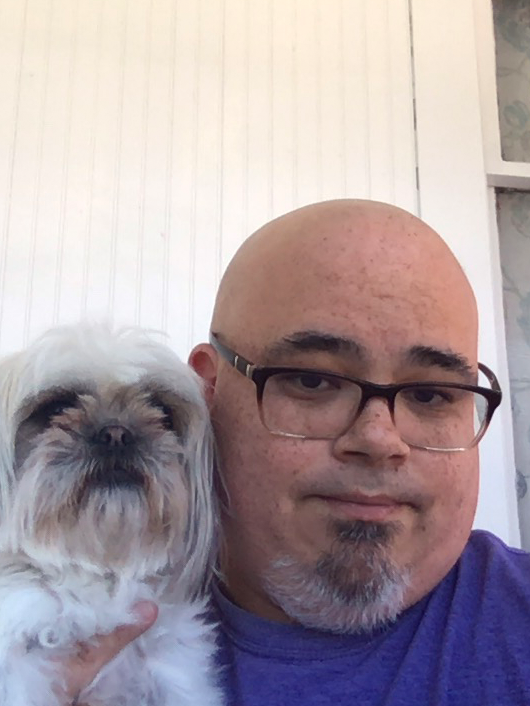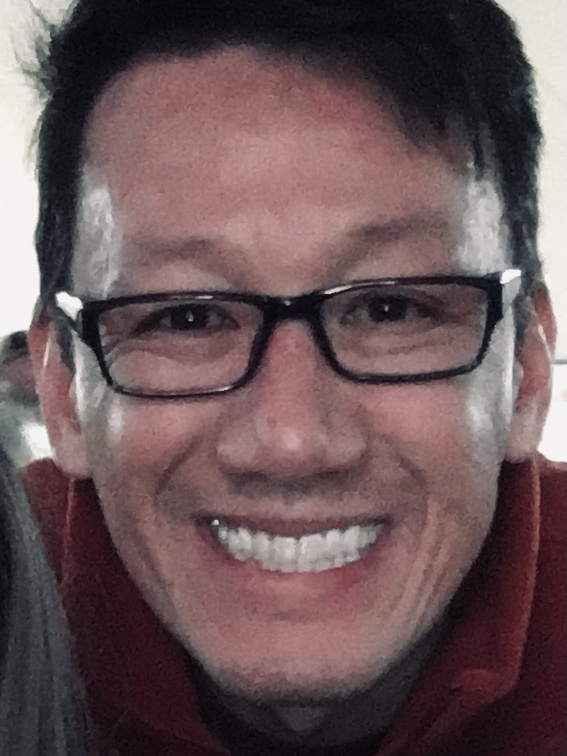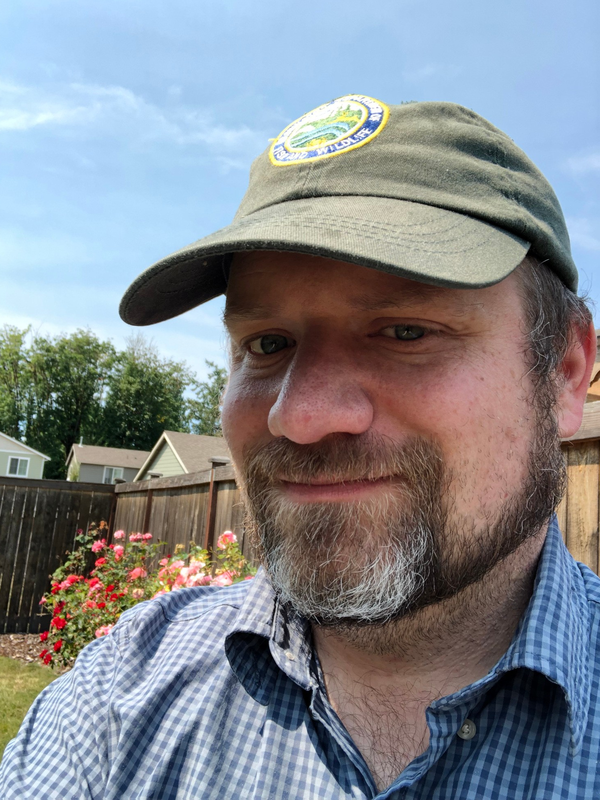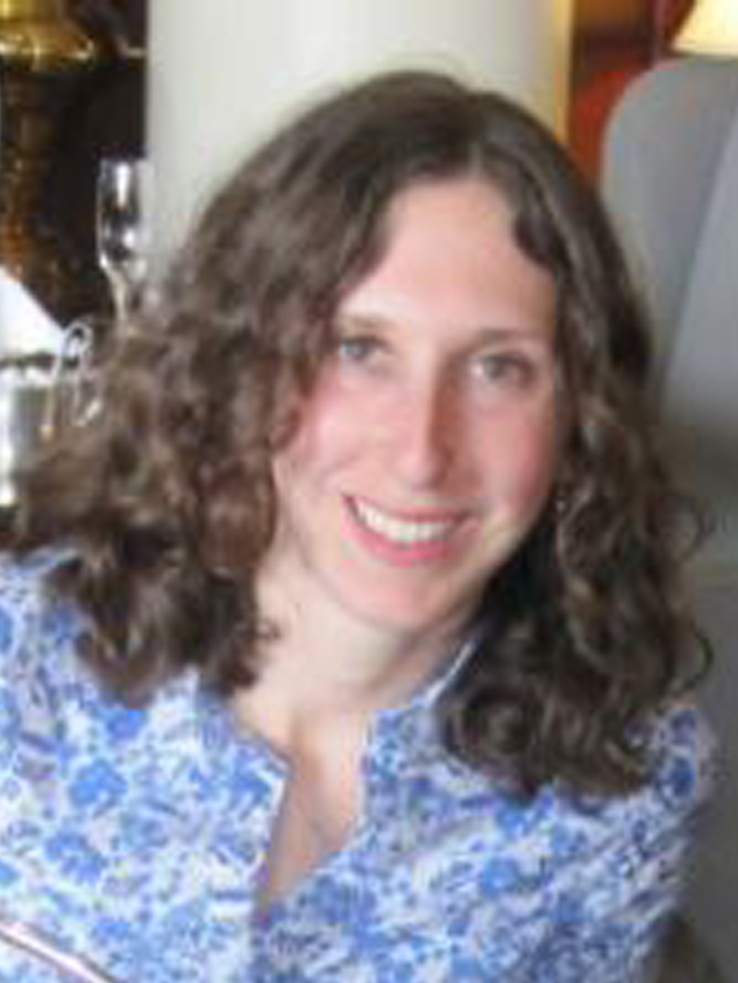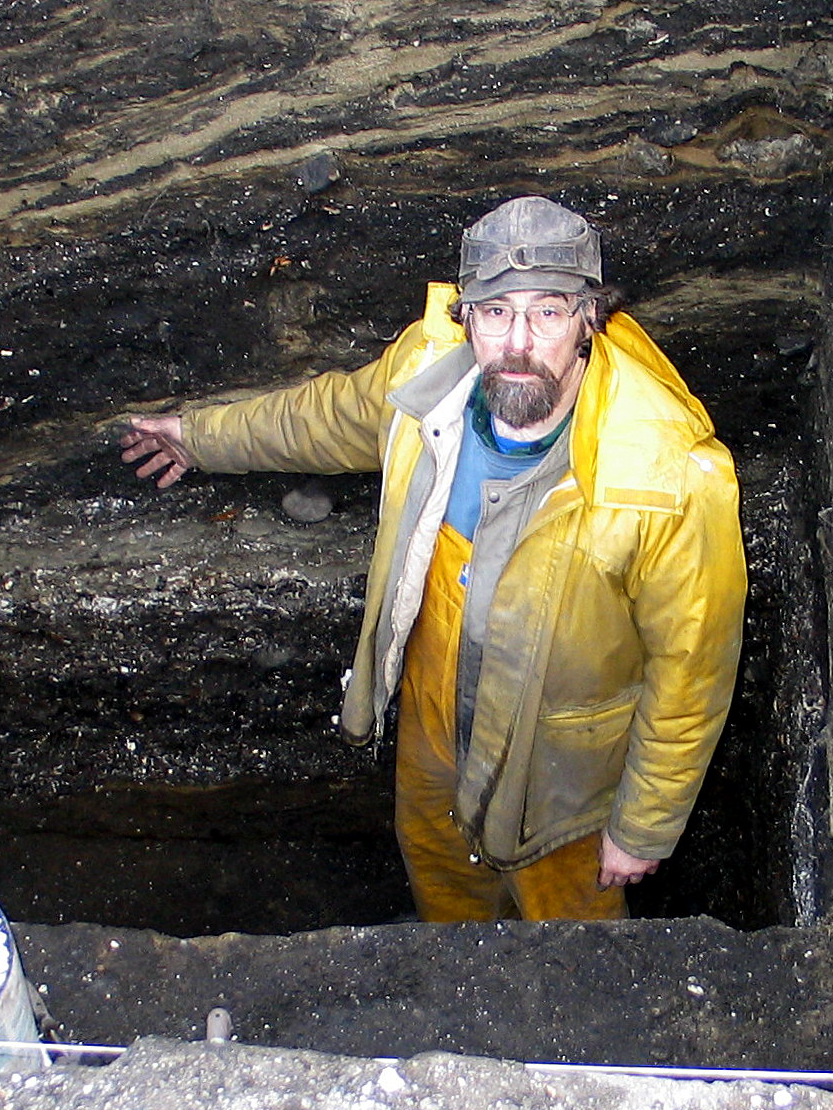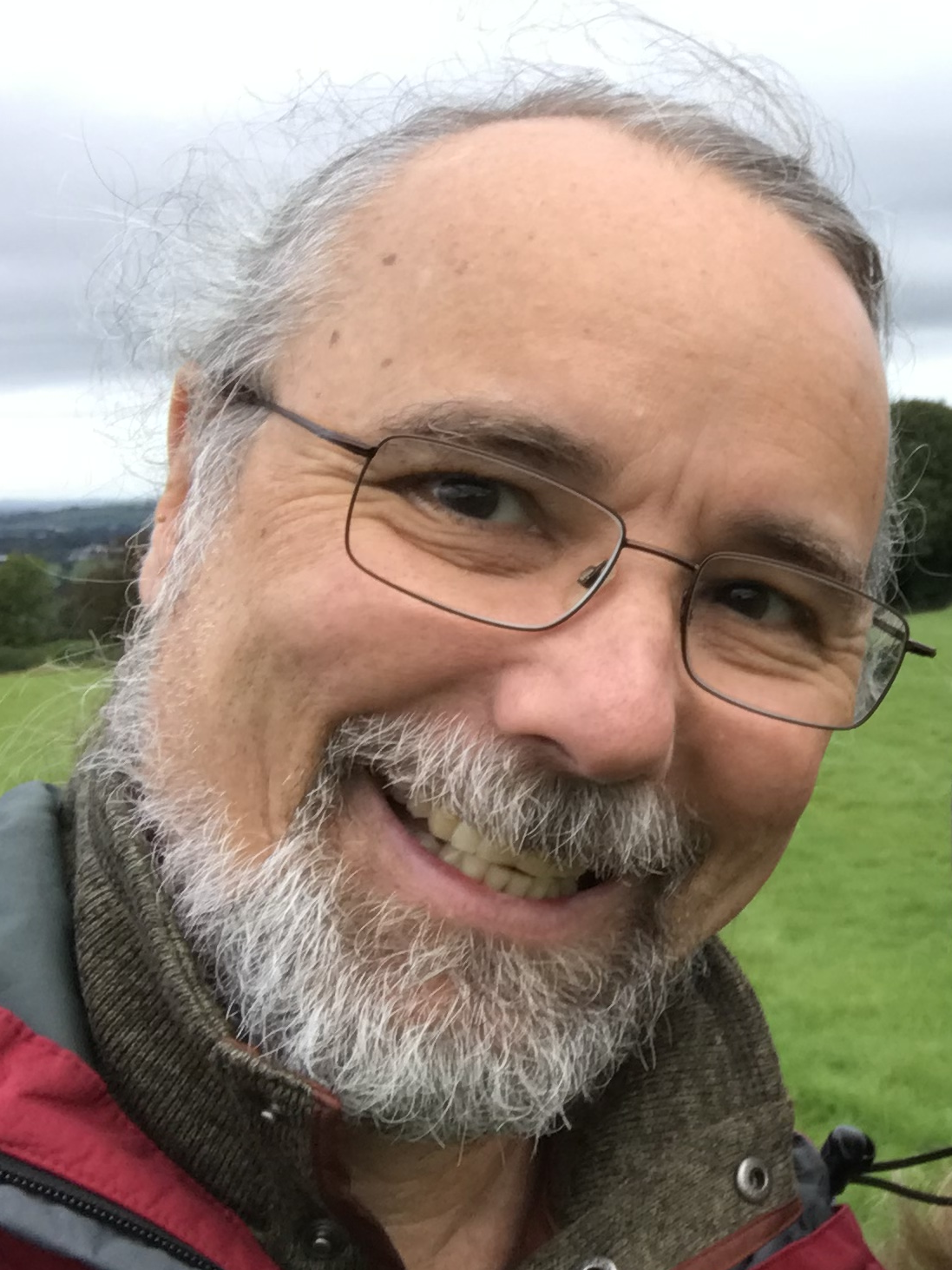This site is under construction.
|
Brian Buchanan
Mentor Brian Buchanan is an Assistant Professor at Eastern Washington University, and received his MA from American University and PhD from Durham University. He is a landscape archaeologist interested in the complexities of how past societies consciously and unconsciously interacted and altered the land around them. Brian is a GIS and remote sensing specialist with field and research experience across the United States, in the United Kingdom, Tunisia, and the Ukraine. Prior to his doctoral studies, Brian supervised CRM field crews in the Mid-Atlantic Region and the Pacific Northwest. In addition to landscape archaeology, Brian is interested in public education, field archaeology, historic archaeology, and the investigation and integration of legacy datasets created from both academic research and CRM. Currently he is the president of Bridging Frontiers, a non-profit set up to support students traveling for their first field school experiences.
|
|
Christopher Yamamoto
Mentor Chris has over 17 years of experience in cultural resource management projects in the Pacific Northwest. He began his career in 2006 through a student internship working as an archaeologist at Olympic National Park, later receiving his Bachelor of Arts from Western Washington University in 2007. He then began working for local consultant companies. During his career, Chris has had a rich experience of working all over Washington State and gained a passion for working with precontact cultural resources. Later in his career he began managing field projects and was responsible for teaching early career archaeologists. Chris believes that good training ensures high quality work that helps protect the resources that we care about as archaeologists. He is grateful for the time, energy, and care his bosses and senior co-workers put into training and mentoring him early in his career and values the opportunities to teach, train, and mentor the next generation
In 2021, Chris decided to enroll in a graduate program at Adams State University to obtain his Master of Arts in Cultural Resource Management where he is researching chipped stone tool technology in the Pacific Northwest. |
|
Jerald Ek
Mentor Jerald (Jerry) Ek is a faculty member in the Department of Anthropology at Western Washington University. His research focuses on landscape studies, human-environmental interactions, and political economy, with methodological specializations in settlement survey, remote sensing, ceramic analysis, and lithic analysis. After spending most of his career focused on Mesoamerican Archaeology (specifically long-term studies of sustainability and resilience in the Maya Lowlands), he is shifting focus to indigenous-led and community-based participatory research in the Salish Sea. Jerry serves as a co-director of the x̌ʷiq̓ʷix̌ʷalqʷuʔ (Blue Water) Archaeological Project, a collaborative partnership between the Stillaguamish Tribe of Indians and Western Washington University.
|
|
Kelly Bush
Mentor Kelly Bush started her archaeological career in British Columbia, Canada in the mid-eighties and received her MA from Western Washington University in Bellingham, Washington in 1997. She opened the Equinox Research and Consulting International Inc. (ERCI) office in Skagit County Washington in 2002 and has found that much of her work is in complex or challenging projects with a range of stakeholder interests. As President and Principal Investigator at ERCI Kelly has worked on nearly every type of cultural resources project you can imagine, including hundreds of archaeological and historic research projects, Traditional Cultural Properties studies, Historic Properties Management Plans, and other plans and agreement documents and provided cultural resources training to local governments, contractors, and project designers. She is a hobby farmer and a raiser of young people and loves to camp, swim, and spend time with her dogs Groot and Rocket. Her favorite part of work is developing teams, training archaeologists, and solving problems.
Kelly served as president of the Association for Washington Archaeology from 2019-2021. This has made her more keenly aware than ever that the CRM industry needs to partner with academia and tribes to nurture highly skilled and cultural aware archaeologists. Moreover, these partnerships are needed to raise the profile of CRM and showcase the value to communities that we provide in risk management and in telling their stories. |
|
Melissa Darby
Mentor Melissa Darby is affiliated research faculty in the Anthropology Department at Portland State University. She is principal investigator and sole proprietor of Lower Columbia Research & Archaeology. Darby has worked for over forty years as an archaeologist and historian in the Northwest and is a noted authority on the ethnohistory of the Native people of the lower Columbia River region. Her research on Native American cultures of the area includes important works on settlement patterns, plankhouse architecture, and plant foods used by the indigenous people of the region. She has contributed substantially to our understanding of the Native peoples and the world they inhabited prior to European colonization. Her book Thunder Go North the Hunt for Sir Francis Drake’s Fair & Good Bay was published by the University of Utah Press in 2019 and is about the mysterious and vexed question of where Francis Drake landed the Golden Hind in the summer of 1579.
|
|
Julia Furlong
Mentor Julia Furlong is pursuing a PhD in Archaeology at Arizona State University and works part time as an archaeologist for Archaeological and Historical Services (AHS) in Cheney, WA. She is also owner and principal investigator of Furlon Services. Having worked as a project archaeologist and GIS analyst for AHS since 2014, and now her own company, she has led numerous projects throughout the Northwestern US. She has taught part time at Eastern Washington University (EWU) and regularly presents research at conferences. Her educational background includes a M.S. in Archaeological Science from Durham University, a Grad. Cert. in GIS from EWU, and a B.S. double major in Archaeology and Biological Anthropology from Kent State University. She has worked on archaeological projects in the Northwestern US, Ohio, Louisiana, and Yucatán, Mexico. In the past two years, she has developed an interest in public education around archaeological practice and preservation. This has impacted both her research and personal life. She believes in public education at large and small scales, be it sharing a beer and light conversation at the local pub (pre covid!) to influencing policy.
Julia serves as Secretary of the Association for Washington Archaeology (2021-2023), having served as a Director at Large her previous term (2019-2021). She currently manages the association’s membership and serves on the membership and mentorship committees. |
|
Sara Gonzalez
Mentor Dr. Sara Gonzalez is an Associate Professor of Anthropology at the University of Washington and a Curator of Archaeology at the Burke Museum of Natural History and Culture. Her research examines how Indigenous and community-based participatory approaches to research improve the empirical and interpretive quality of archaeological narratives and this work is anchored by her ongoing community-based collaborations with Tribal Nations in California, Oregon, and Washington.
|
|
Dennis Griffin
Mentor I have been working as a professional archaeologist and historian throughout the Pacific Northwest and Alaska for over 40 years. Having earned a PhD in Anthropology from the University of Oregon, and a Masters of Arts degree in Interdisciplinary Studies (Archaeology, Cultural Anthropology, Historic Preservation) from Oregon State University, I have been fortunate to have been able to work for and with several federal (e.g., USFS, BLM, BIA) and state (SHPO) agencies, and Tribal Nations (e.g., tribal archaeologist with the Yakama Nation, student intern with several Oregon Tribes, consultant and contractor with Tribes and tribal peoples from Oregon, Washington and Alaska) during my career. In addition, I have worked for several regional contract companies, as well as owned (Cultural Horizons) or co-owned (Archaeological Frontiers) two cultural resource firms specializing in northwest archaeological research projects. After having served as the State Archaeologist with the Oregon State Historic Preservation Office (SHPO) for 18 years, I retired from the State of Oregon in the fall of 2020 to focus on several personal research projects and to continue consultation projects under my current company Cultural Horizons.
I have a strong research interest in Northwest prehistory and history, with an emphasis on ethnoarchaeology, cultural ecology, oral history and culture change. I have assisted tribes in the development of several traditional cultural property assessments (TCPs), and have been very involved in tracking the history of archaeology in the northwest, both legislatively and methodologically. Having authored many peer-reviewed articles, a monograph, and book, my current research focuses in both Oregon and Alaska with a strong emphasis on incorporating local oral history and encouraging tribal collaborative projects. |
|
Sydney Hanson
Mentor Sydney Hanson works as a Transportation Archaeologist at the Washington State Department of Archaeology and Historic Preservation (DAHP). She received her B.S. degree from Central Washington University in 2014, and her M.A. from Washington State University in 2017. She has field experience in Thailand, Japan, Alaska, Wisconsin, and Washington. She has co-authored several peer-reviewed articles and numerous cultural resource management reports. Sydney became a Mentor in order to help students and early-career professionals bridge the gap between academic and CRM archaeology. She hopes to teach her mentees how to advocate for themselves and others, how to navigate challenges in school, the field, or the workplace, and how to find a fulfilling career.
Sydney is passionate about plants! She is trained as a paleoethnobotanist, and is fascinated by the prehistoric use of plants as food, medicine, and more. She spends as much time as she can in her garden, and is learning how to forage for wild edibles. |
|
Bob Kopperl
Mentor Bob has worked professionally as an archaeologist since the mid-1990s, directing cultural resource management projects since 2003. He finished his undergraduate studies in Michigan in 1995, and obtained his MA (1998) and Ph.D. (2003) in anthropology at the University of Washington. He has been a Cultural Resources Principal Investigator for both small regional and large national CRM and environmental consulting firms and has directed projects throughout the greater Pacific Northwest and Alaska for municipal, state, federal, Tribal, and private clients. Bob has overseen large-scale surveys, significance evaluation projects, and intensive research-forward data recovery projects for archaeological resources ranging from coastal shell middens, Interior Native American hunting camps, to remnants of historic European American settlements.
Bob enjoys a balance in his professional life between being a cultural resources consultant who places professional and ethical best-practices at the forefront, while also maintaining research, academic, and service-related “irons in the fire.” These pursuits keep him fulfilled and connected to both the contemporary people whose past is the subject of study and also to his fellow professionals, both new and weathered. Bob served on the Board of Directors of the Association for Washington Archaeology from 2008 to 2020, including as President and Secretary. He has been a curatorial affiliate of archaeology at the Burke Museum of Natural History and Culture since 2004, and periodically teaches a CRM class for the Department of Anthropology at the University of Washington. He has authored numerous peer-reviewed articles and published book chapters involving the archaeology of the Pacific Northwest and Alaska, evolutionary ecology, zooarchaeology, cultural landscapes, Pacific Northwest and Alaskan traditional foods, archaeological subsistence studies, and reflections on our practice of professional archaeology in the Pacific Northwest. He views this output as important, but not as important as the relationships that can be built when archaeology is done in a professional, responsible, and collaborative manner. Bob wouldn’t be here without good mentors. He’s had his share, and it’s important for him to give that back to our community. Good fits for his mentees might include students considering a career in CRM; new professionals starting a CRM career who want to maintain balance between the “day-job” of CRM and other research pursuits; and those with a passion, or even a curiosity, about fishbones and other animal remains from archaeological sites. |
|
Steven Mullen Moses
Mentor wiaac syayayəʔ, Steven Mullen Moses ti dsdaʔ. sdukʷalbix̌ čəd. Hello, friends, I am Steven Mullen Moses, a member of the Snoqualmie Tribe and the Director of Archaeology & Historic Preservation. I am also a veteran of the U.S. Air Force. I been involved in cultural resource protection for 16 years. Previous to that I worked as a network administrator and GIS technician for 10 years. This experience has taught me to solve complex problems and approach projects with a resolve to negotiate conflicts through collaboration. MY staff and I review approximately 4,000 development projects a year. I have negotiated numerous Memorandum of Agreements with multiple Federal and State agencies. I have in-depth knowledge and practical experience of archeological laws and policies. I also worked with my Tribal government, WA DAHP and Governor Inslee’s staff to help write and pass WA Executive Order 21-02 – the replacement of EO 05-05.
I have given numerous presentations to both the public and agency staff and spoken at numerus schools on the importance of Tribal collaboration. The Indigenous peoples of this area have been here for at least 13,000 years, but only by working together can we protect and preserve our shared history of the Pacific Northwest. hawadubš čələp! (Thank you.) |
|
Jaime Palmer
Mentor Jamie Palmer received his MA from Western Washington University in 2015. He has over 16 years of professional archaeological experience with the Bureau of Land Management (BLM), the Forest Service, and private sector. He has worked in the Pacific Northwest, the Great Basin, Intermountain region, the Great Plains, the southwestern U.S., and southeastern U.S. Currently he is an archaeologist at the Bureau of Land Management-Oklahoma Field Office in Norman, Oklahoma. During his time at the Oklahoma Field Office, he has benefitted greatly from mentors via BLM leadership programs. Through these mentoring sessions, Jamie developed a leadership skill-set that helped him set mission goals & objectives, use good project management techniques, frame and solve the right problem-sets, become better at time and resource management, and always volunteer to do something outside of his wheelhouse. Jamie enjoys spending time with his growing family, being outdoors, watching and playing sports, eating fried fruit pies as well as honey buns.
|
|
Adam Rorabaugh
Mentor Adam N. Rorabaugh is an archaeologist for the Washington State Department of Fish and Wildlife. His field experience involves household archaeology in British Columbia and Washington State. After graduating from Washington State University he worked with the Colville Confederated Tribes and has taught heritage resource management courses at Simon Fraser University. His research interests focus on collaborative archaeology and using evolutionary approaches to answer questions of interest to Tribes and First Nations.
|
|
Amanda Taylor
Mentor Amanda works with Willamette Cultural Resources Associates in Seattle. She has field experience in Alaska, California, Nevada, New York, Oregon, and best of all Washington. After graduating from the University of Washington in 2012, Amanda worked as a visiting Assistant Professor of Anthropology at Pacific Lutheran University through 2017. She has authored peer-revied articles and is currently the editor of Archaeology in Washington, the journal of the Association for Washington Archaeology. These days, Amanda plans and writes about cultural resources management projects, gets out to do as much fieldwork as she can, and learns new things every day.
|
|
Gary Wessen
Mentor I have a Ph.D. in Anthropology from Washington State University and -- in total -- I have 51 years of archaeological fieldwork experience in western North America; I have worked in central Mexico, California, Oregon, Idaho, Washington, and southeast Alaska. The vast majority of my experience, however, has been in coastal and lowland forest settings in western Washington. To date, I have worked with or conducted nine large-scale excavation projects, 91 small-scale site testing and evaluation projects, and more than 500 archaeological site survey and/or monitoring projects. While some of the latter were conducted as a graduate student and then as an employee for Western Heritage, Inc., I formed my own CRM consulting company - - Wessen & Associates, Inc. - - in 1984 and virtually all my work since then has been through this organization. Wessen & Associates has always been a small company and I have been the Principal Investigator on every job. I have worked for a wide variety of federal, state, and local governments, larger environmental and engineering firms, private individuals, and tribes. Working for or with tribes has been a strong focus and I have at least some experience with most tribes in western Washington. I have particularly strong and longstanding relationships with the Makah and Skokomish Tribes.
I have been certified as a Field Researcher by the Register of Professional Archaeologists (RPA). My own research interests include Northwest Coast prehistory and the rise of maritime adaptations. I have a strong research interest in marine shellfish resources, shell midden sites and the cultural behaviors associated with them. In particular, I am interested in the methodologies and research potentials of these complex, poorly understood, and grossly under-investigated sites. A second strong research interest has been the early prehistory of the Pacific Northwest; particularly so-called “Old Cordilleran” or “Olcott” assemblages. Further, I have a strong personal interest in the protection and preservation of archaeological sites. I served as the Treasurer for the American Society for Conservation Archaeology (ASCA) in 1993-94. I was a Director-at-Large with the Association for Washington Archaeology (AWA) from 2001 to 2005, the association’s Vice President from 2005 to 2008, and a Director-at-Large again from 2008 through 2011. In the same regard, I have been a strong supporter of Archaeology Month programs and have also given public programs on behave of the Makah Cultural and Research Center, the Jefferson County Historical Society, and Peninsula College. I have received two awards from the Washington State Department of Archaeology and Historic Preservation during my work. I received their Excellence in Education Award in 1999 for my participation in Archaeology Month programs at numerous places in western Washington and other public outreach events and, more recently, the Career Achievement Award in 2020. |
|
Scott Williams
Mentor Scott Williams began his archaeological career working in Hawaii and the Pacific, receiving his BA from the University of Hawaii in 1985 and his MA from Washington State University in 1989. Scott worked for a variety of consulting firms from 1984 to 2002, ranging from small ones employing 2-3 people to large multi-national engineering companies, as well as running his own consulting company. In 1997 he took a part-time job teaching at Lane Community College in Oregon, and in 2002 he moved to Washington to take a grant-funded position with the Washington State Department of Archaeology and Historic Preservation. From there he went on to work for the USDA Natural Resources Conservation Service, back to DAHP, and to WSDOT, where he has been the Cultural Resources Program Manager since 2008. During his career, Scott has worked in nearly every area of cultural resources management, from planning and running small surveys to managing large multi-year projects with crews of 30 or more people, managing cultural resources programs in the private and public sector, and regularly presenting at and chairing sessions for professional conferences. He has served on the boards for the AWA and the Society for Hawaiian Archaeology, and currently serves as the Vice President for the Maritime Archaeological Society and on the Pacific Northwest Archaeological Society board. Scott’s research interests are lithic technology, radiocarbon dating, and shipwrecks, and his passion is in presenting archaeological research to the public in an engaging and interesting way.
|
